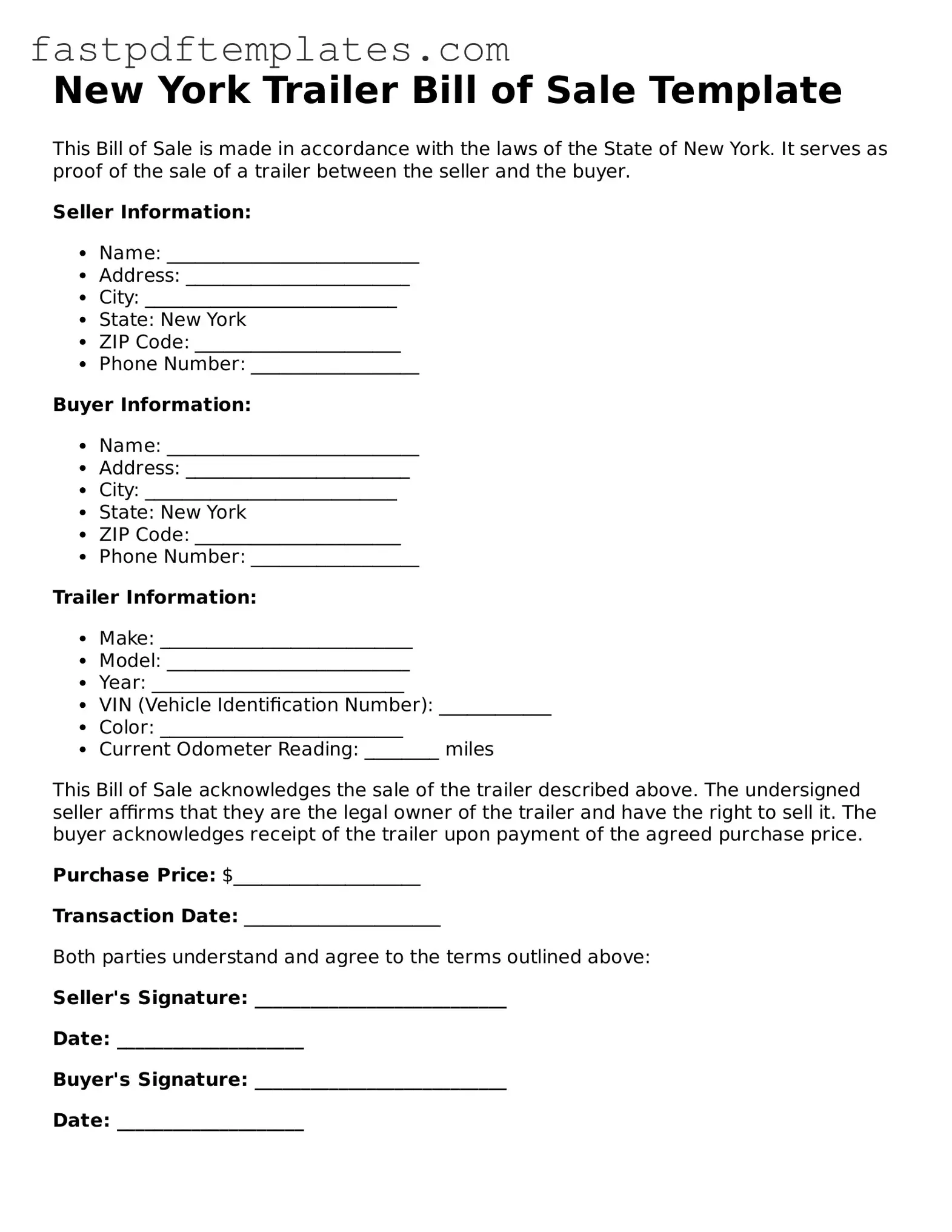The Vehicle Bill of Sale is a document that serves a similar purpose as the New York Trailer Bill of Sale. Both documents facilitate the transfer of ownership from one party to another. They include essential details such as the names and addresses of the buyer and seller, a description of the vehicle or trailer, and the sale price. This document is crucial for registering the vehicle with the appropriate state authorities and ensuring that the transaction is legally recognized.
The Boat Bill of Sale operates in much the same manner as the Trailer Bill of Sale. It is used to transfer ownership of a boat from seller to buyer. This document typically contains similar information, including the identification details of the boat, the buyer and seller's information, and the agreed-upon price. Like the Trailer Bill of Sale, it is important for legal purposes and for registering the boat with state authorities.
The RV Bill of Sale is comparable to the Trailer Bill of Sale as it also documents the transfer of ownership for recreational vehicles. This document includes pertinent information about the RV, such as its make, model, and VIN, along with buyer and seller details. Like the Trailer Bill of Sale, it provides a clear record of the transaction, which is essential for registration and legal purposes.
The Mobile Home Bill of Sale serves a similar function as the Trailer Bill of Sale, particularly when dealing with the sale of mobile homes. This document outlines the terms of the sale, including the buyer and seller's information, the mobile home's details, and the sale price. Both documents ensure that the transfer of ownership is documented and legally recognized.
The Snowmobile Bill of Sale is another relevant document that resembles the New York Trailer Bill of Sale. It is specifically used for the sale of snowmobiles and includes details about the snowmobile, such as its make, model, and VIN. This form also captures the buyer and seller's information, ensuring a smooth transfer of ownership and compliance with state regulations.
The ATV Bill of Sale is similar to the Trailer Bill of Sale in that it facilitates the transfer of ownership for all-terrain vehicles. This document includes essential details like the ATV's make, model, and VIN, as well as the buyer and seller's information. Both documents serve to protect the interests of both parties and are necessary for registering the vehicle with the state.
The Personal Watercraft Bill of Sale is akin to the Trailer Bill of Sale, focusing on the sale of personal watercraft such as jet skis. This document captures vital information about the watercraft, including its make, model, and serial number, along with the buyer and seller's details. Both documents are critical for ensuring that ownership is properly transferred and recorded.
The Farm Equipment Bill of Sale is another document that parallels the New York Trailer Bill of Sale. It is used to document the sale of farm machinery and equipment, capturing details about the equipment, including make, model, and serial number. Both documents facilitate a clear transfer of ownership and provide essential information for record-keeping and legal purposes.
Finally, the Construction Equipment Bill of Sale is similar to the Trailer Bill of Sale, as it documents the sale of construction machinery. This document includes details about the equipment being sold, such as its make, model, and serial number, along with the buyer and seller's information. Both forms serve to protect the rights of the parties involved and ensure compliance with relevant regulations.

